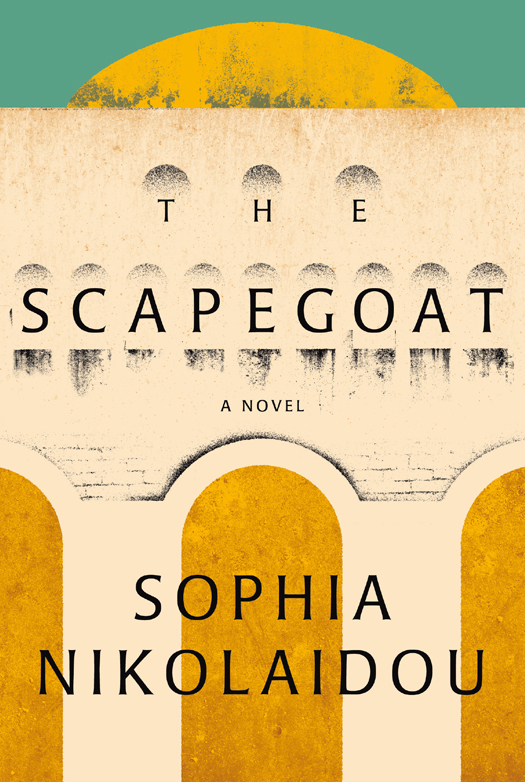
The Scapegoat
A Novel
کتاب های مرتبط
- اطلاعات
- نقد و بررسی
- دیدگاه کاربران
نقد و بررسی

November 10, 2014
An ennui-addled high school student investigates a decades-old murder mystery in this funny, heartfelt, and intellectually potent novel, Greek novelist Nikolaidou’s first publication in the U.S. Alternating between the mid-20th century and the present day, and set largely in Thessaloniki, the story follows Minas Georgiou, a Hellenic Holden Caulfield who flouts the expectations of his family by refusing to take the country’s traditional year-end university entrance exams. Instead, he accepts an assignment from his teacher, Marinos Soukiouroglou, a former academic who “could bring an entire class to its knees with a single glance.” The assignment concerns the 1948 murder of an American journalist, Jack Talas, who was reporting on postwar tensions in Greece between communists and the right wing. Many believe the supposed culprit, Manolis Gris, was falsely convicted to appease Americans (and secure their continued aid). As Minas digs deeper, he finds surprising connections between Gris’s story and his own: Evelina Dinopoulou, a young woman he has a crush on, is the granddaughter of Gris’s lawyer; and Minas’s father, a newspaper editor, once tried his own hand at solving the case. Based on the real-life 1940 murder of journalist George Polk, the novel, featuring an array of colorful supporting characters, argues that history is less a streamlined narrative than a shifting kaleidoscope of perspectives—“riddled with qualifications, asterisks, interpretations, clashes of opinion.”

December 1, 2014
Modeled on a real-life unsolved mystery, this is a complex story in which murder and politics in postwar Greece resurface to change the life of a bright teenage boy who's been going off the rails.Greek writer Nikolaidou's first work to be translated into English uses as its springboard a fictionalized version of a 20th-century cause celebre: the drowning of well-connected U.S. journalist George Polk, who was on the trail of government corruption and misappropriated aid in Greece in 1948. Under pressure to find a culprit, the police arrest and torture a journalist, Manolis Gris, forcing a confession from him which will result in a life sentence. Nikolaidou considers these events from the perspective of people at the time and others more than half a century later, notably that of Minas Georgiou. Minas' wily schoolmaster gave him the project of re-examining the Gris case after the boy's surprising announcement that he's not going to apply for a place at university. What emerges is a fragmentary story, assembled and enlarged by the voices and lives of surrounding, connected characters, notably female ones: sisters, wives and mothers. Gris' mother is a widow with four children to support, all of whose fortunes will be blighted by history. Minas' grandmother was once loved by Dinopoulos, the lawyer who represented Gris and plea-bargained for him, saving his life. Ultimately Minas' project doesn't solve the Gris enigma but does inspire the boy-who now finds himself in the midst of Greece's financial crisis-to return to his studies, newly alive to the recurrent hypocrisies of "ideas above lives, the country above its people."More context would have helped international readers understand the Greek civil war and the country's education system; without it, it's harder to appreciate this carefully orchestrated tale of political expediency.
COPYRIGHT(2014) Kirkus Reviews, ALL RIGHTS RESERVED.

January 1, 2015
This latest book from Athens Prize winner Nikolaidou (Tonight We Have Friends) is really two novels in one. The first story is based partly on the actual 1948 killing of American journalist George Polk (here called Jack Talas) during the bitter Greek civil war. The right-wing authorities convicted a local man of the murder, but he was widely thought to be a scapegoat. The second story is set in contemporary Thessaloniki, as bored high school senior Minas refuses to go to college, much to the distress of his parents. His teacher wisely assigns him the task of investigating the 1948 murder and trial as an intellectual challenge. The author does an outstanding job of weaving the two narrative strands, contrasting those grim times of the late 1940s (a civil war that most Americans know little about) with today's climate of financial crisis in Greece. The novel reads very smoothly in its English-language translation. Both stories are told from various viewpoints, with minor characters serving as a modern-day Greek chorus. VERDICT This gripping novel explores the themes of deceit, injustice, and the illusive search for truth while engaging the reader with a story about young people in Greece today.--Leslie Patterson, Rehoboth, MA
Copyright 2015 Library Journal, LLC Used with permission.

December 15, 2014
Nikolaidou's first novel to be published in the U.S. uses a modern adolescent coming-of-age tale to explore a true-life murder mystery from the Greek civil war. Minas Georgiou is a bookish teen in a household in which education is everything, but he hates school and doesn't want to take his all-important college entrance exams. His stern but dedicated teacher Soukioroglou offers an alternative: a research paper on the 1948 murder of CBS journalist George Polk, who had accused Greek officials of graft and was subsequently pulled dead from the Aegean Sea. A young Greek journalist with ties to the Communist opposition confessed to the crime, apparently under torture, but the full story remains untold. Grudgingly at first, Minas immerses himself in the case. It also helps that the smart girl for whom he is falling is the granddaughter of the accused's attorney. Told from various perspectives, the narratives intertwine: Minas gropes his way toward adulthood, and readers are invited to grapple with messy questions of historical truth and moral ambiguity. In the end, this mixture of history and fiction is both sweet and unsettling.(Reprinted with permission of Booklist, copyright 2014, American Library Association.)

























دیدگاه کاربران